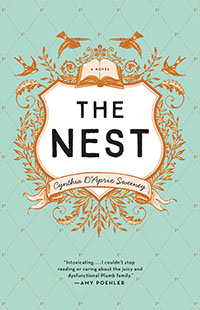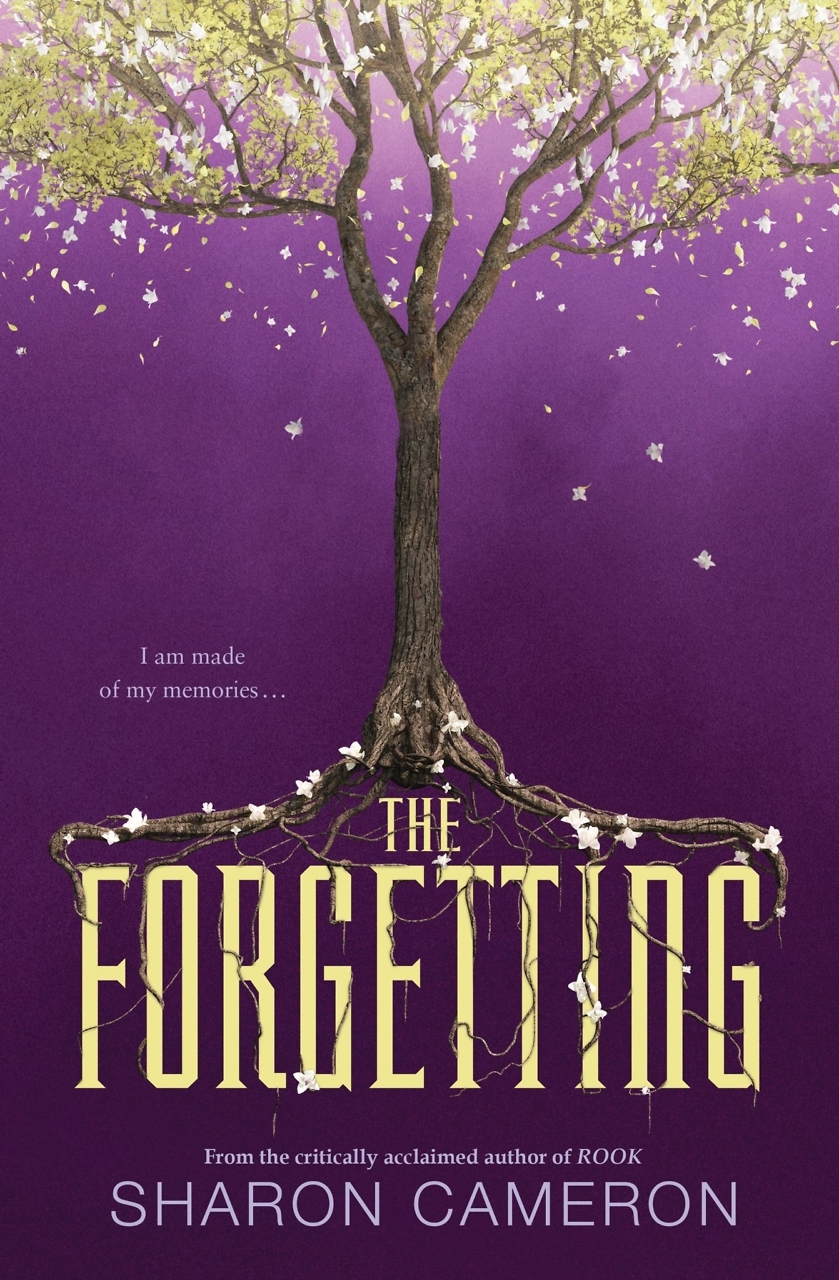Hornet’s Nest
A brother’s recklessness decimates his siblings’ inheritance in Cynthia D’Aprix Sweeney’s The Nest
We first meet three of the four Plumbs—middle-aged siblings and protagonists of Cynthia D’Aprix Sweeney’s debut novel, The Nest—as they pre-game in separate bars for a lunch meeting during which they have promised not to drink. Leo, the eldest brother, has just gotten out of rehab, where he was sent following an accident involving a nineteen-year-old waitress. Jack, Bea, and Melody, his brother and sisters, plan to confront him about the money he used to post bail and neutralize any accompanying scandal.
 The Plumb siblings have, it turns out, seriously counted their chickens before they hatched—about two million chickens altogether. When their mother Francie cashes in their collective inheritance, long known in the family as the Nest, to rescue Leo, her other children are stupefied.
The Plumb siblings have, it turns out, seriously counted their chickens before they hatched—about two million chickens altogether. When their mother Francie cashes in their collective inheritance, long known in the family as the Nest, to rescue Leo, her other children are stupefied.
Flashback nearly twenty-five years to the origins of the Nest, when Leonard Plumb Sr. established the trust for his children. “’Nothing significant,’ he would tell them repeatedly, ‘a modest nest egg, conservatively invested, dispersed in time for you to enjoy but not exploit.’” The children would not have access to the funds “until Melody, the youngest, turned forty.”
Leonard Sr. died not long after establishing the trust, but thanks to George, the Plumbs’ judicious wealth manager, the Nest ballooned. But a stuffed nest is not what the patriarch had in mind: his own family fortune was squandered by profligate progenitors, and his identity as a self-made man defined his entire life. The last thing he wanted was to turn his children into trust-fund monsters: “He was realistic about the maturity—emotional and otherwise—of his four children: not commendable,” Sweeney writes.
Indeed, there are no heroes of thrift and innovation among the Plumbs.
 Leo Plumb is a media dilettante whose magazine, SpeakEasy, launched his notorious public profile. The now-defunct publication was “smart and irreverent enough to be slightly scandalous, which made it an instant hit with the insular world of the New York media, the precise community it ruthlessly mocked.” Leo is somewhat humbled, if not properly chastened, by the sudden downward spiral his life has become; not every man can survive a horrific car accident, a high-profile divorce, and a forced stint in rehab. Now essentially homeless, it dawns on him “with deflating clarity how few people in Manhattan would be happy to lend him their sofa.”
Leo Plumb is a media dilettante whose magazine, SpeakEasy, launched his notorious public profile. The now-defunct publication was “smart and irreverent enough to be slightly scandalous, which made it an instant hit with the insular world of the New York media, the precise community it ruthlessly mocked.” Leo is somewhat humbled, if not properly chastened, by the sudden downward spiral his life has become; not every man can survive a horrific car accident, a high-profile divorce, and a forced stint in rehab. Now essentially homeless, it dawns on him “with deflating clarity how few people in Manhattan would be happy to lend him their sofa.”
Antique dealer Jack is married to Walker, his longtime partner and husband of seven weeks. Jack “hadn’t told the other Plumbs yet about his early September wedding to Walker, the wedding to which they hadn’t been invited because Jack wanted the day to be perfect and perfect for Jack meant Plumb-free.” Jack is hiding a very big financial secret from his new husband, and the duplicity required to keep the truth from Walker threatens to end his marriage while it’s still in its newlywed days.
Melody, the youngest and meekest Plumb, is a married mother of teenage twin girls whose lovingly restored historic home has a mortgage with an adjustable rate that’s about to go up. Between the house she can’t afford and the looming specter of college tuition, Melody has perhaps been counting on the Nest more than any of her siblings, though she’s by nature the least equipped to fight for it.
Bea’s feelings about the loss of the Nest—and about Leo himself—are different from her siblings’. Always closer than the others to the eldest Plumb, she is less concerned about her share of the Nest than she is about her relationship with Leo, her erstwhile muse and mentor. Her own Archie stories—three short stories about “a thinly disguised version of a young Leo, a funny, self-absorbed, caustic Lothario”—vaulted her to status of “Glitterary Girl,” as she has been annoyingly dubbed. But Bea hasn’t written anything good in many years and, humiliatingly, has even had to pay back an advance on a novel. She’s grown adept in deflecting questions about her professional standstill: “She was armed with a fistful of diversionary dead-end replies about her long-awaited novel: a well-worn self-deprecating joke about writing too slowly, how if she amortized her advance over the years, it became an hourly wage best counted in half-pennies; a feigned superstition about talking about unfinished work; amused exasperation at her ongoing perfectionism.”
All in all, the Plumb siblings are not in the mid-life fighting shape their father thought they would be by the time they received the Nest, so it’s perhaps a blessing that the money is gone. When the siblings confront Leo, he convinces them he will do everything he can to try to pay them back quickly, and they have no real choice than to grudgingly take him at his word. But the issues the novel explores along the way—family ties, privilege, narcissism, and obligation to oneself and to others—make up the real story. Various other characters weave in and out of the Plumbs’ lives and eventual fates, and the book’s deeply flawed protagonists are nonetheless endearing as they fumble toward their “real” lives. For all of them, the Nest serves as a stand-in for the various ways they’ve each failed to reach for their own metaphorical brass rings of personal and professional achievement. Cynthia D’Aprix Sweeney has written a sparkling new entry in the genre of the humorously dysfunctional family.

Kathryn Justice Leache is a freelance writer who lives with her family in her hometown of Memphis. Her life among books has included work as a librarian and stints as a bookseller at Square Books in Oxford, Mississippi, and The Booksellers at Laurelwood in Memphis.


